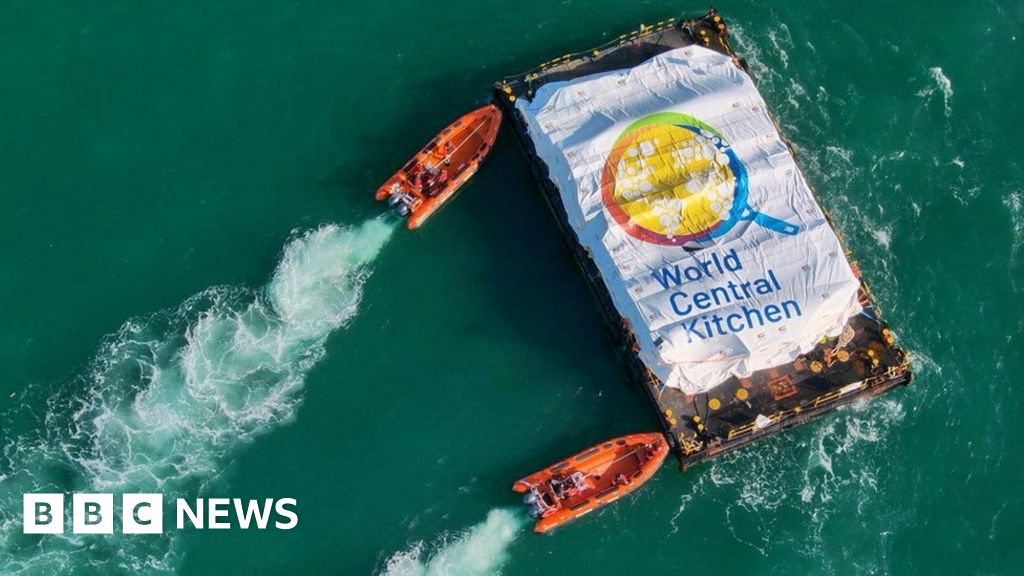The dinghies were used to push provisions from the Open Arms ship to a purpose-built jetty.
The first ship carrying humanitarian aid to Gaza has unloaded supplies ashore.
A Spanish Open Arms ship left Cyprus on Tuesday with 200 tonnes of much-needed food for Gaza, which the UN says is on the brink of famine.
Videos posted online show a crane moving the crates onto lorries waiting at a purpose-built jetty.
After air and ground delivery proved difficult, it marked the beginning of an experiment to see if sea delivery was effective.
The World Central Kitchen (WCK) in collaboration with the United Arab Emirates (UAE) undertook the task of distributing the consignment of rice, flour, pulses, canned vegetables and canned proteins.
Gaza does not have a functioning port, so a jetty off the coast was built by WCK's team. It is not clear how the food will be distributed in Gaza.
Founder of WCK, celebrity chef José Andrés, Wrote in X (Ex-Twitter) All the food aid from the boat was loaded onto 12 trucks.
“We did it!” He wrote that it was a test to see if the next ship could bring in even more aid — up to “thousands of tons a week.”
Israel said in a statement that an open arms ship and its cargo had been searched in Cyprus and that Israel Defense Forces (IDF) troops had been deployed to protect the coast.
Gaza was helped ashore from the boat
Crews worked through the night to get help on dry land. The delivery was highly anticipated since the ship left Larnaca port on Tuesday.
If this sea mission is deemed successful, other aid ships will follow as part of an international effort to get more aid into Gaza. Ships will sail directly to the area using the newly opened sea route.
Separately, the US plans to build its own floating docks off the coast to increase sea supplies. The White House says it could see two million meals a day enter Gaza, but questions remain about the logistics of the plan, with a military ship carrying equipment on board to build the docks.
Military operations and the disruption of social order have severely affected aid deliveries, while Gaza's own food production has been severely affected, with farms, bakeries and factories destroyed or inaccessible.
Aid agencies say the fastest, most effective way to get aid into the region is by road, but Israeli restrictions mean getting part of what is needed.
The World Food Program had to temporarily halt its land distribution as convoys came under fire and looting. An airdrop turned fatal last week when five people were reportedly killed when a parachute malfunctioned and they were hit by an aid pack.
Israel vehemently denies that it is responsible for Gaza's food shortages, allowing aid through two crossings in the south. Instead, it blamed aid agencies for logistical failures.
A cease-fire is being negotiated in Gaza. On Friday, Israel rejected Hamas' latest plan.
The war began on October 7 when Hamas gunmen attacked southern Israel, killing around 1,200 people and taking 253 hostages. More than 31,400 people have been killed in Gaza so far, according to the Hamas-run health ministry.
